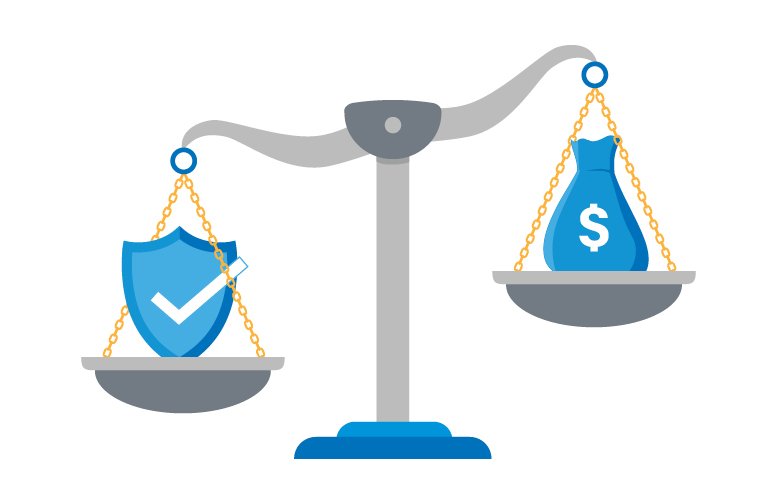Search the Community
Showing results for tags 'customers'.
-
.thumb.jpg.2b345efc275b9df0af2bbb306a10a78a.jpg)
What Your Customers Don’t Tell You is What’s Most Damaging
Joe Marconi posted a blog entry in Joe's Blog
You’re out to dinner with a friend. The service was horrible, the meal took forever to get to your table, and it was not what you expected. You get the check, pay the bill, and start heading for the door. At the door is a woman, a staff member, holding it open and saying in a monotone voice, “How was everything?” You pause for a second, look her in the eyes, and reply, “Everything was fine, thank you.” As you walk to your car, you turn to your friend and say, “That’s the last time I go to that restaurant!” It's often said that the kiss of death for any business is what your customers are not telling you. Most people avoid confrontation. If they don’t like the service, the price, or the product, many consumers will not say anything. They would rather leave it alone and move on and try another company. Think about your auto repair shop. Think about your customers. How many of your customers, after having a less-than-perfect experience, will not say a word to you or your staff? How many of these customers will come back to you? How many will not? It’s important to understand that your customers are not only judging you by comparing you to your competition but also by the combined experiences of all companies and the interactions they come into contact with daily. And most of those experiences are not good. So, it would be in your best interest to create an experience that tells your customers, “We care about you, and we want you back!” There are two things to consider regarding customer service and ensuring that you have met your customer’s expectations and created a memorable experience. First, when someone does give you critical feedback or post a negative review, use that feedback to learn and improve. How the customers view their experience may not be aligned with what you believe you have provided, but their opinion is their reality, and that’s all that matters. The other thing to consider is having open and honest discussions with your employees, especially service advisors, to understand what excellent customer service is like, and try to look at that experience through the eyes of the consumer. This may not be easy and will take training, but it is essential. Remember, it is the customer that ultimately determines what an amazing experience looks like. -
Herb Kelleher, the co-founder of Southwest Airlines, was once asked, “Who’s more important, your customers or your employees? Thinking back on what his mother had taught him, Kelleher responded, “My mother taught me that your employees come first. If you treat them well, then they treat the customers well, and that means your customers come back and your shareholders are happy." Shop owners have been taught that the customer is always right and that their needs supersede all other needs. Anyone in business dealing with people every day knows that this paradigm, in reality, doesn’t always hold up. In business, you need customers; without them, you don’t have a business. However, without employees, you don’t have a business either. It’s the old “chicken or the egg” question. Here’s my view on this; I agree with Herb Keller that employees come first. But I take it one step further. You need a team of superstar employees who share your culture and value the team concept. You need people that love what they do and want to help others. Then, as their leader, you need to treat your employees well. Why? The way you treat your employees is how they will treat your customers.
-
Hey guys. I'm new to the forum and was looking for this subject but couldn't find it. Sorry If I'm posted something that's already been discussed. I own a brake shop in Austin, TX. We do anywhere from 10-20 brake jobs a day. We only do brakes so I don't know how much full service auto shops deal with this problem but... Customers are constantly calling in claiming they've bought the best parts or they want to provide their own parts because they've done research and know what is best. This drives me crazy. First of all they don't know whats best. Then after being told no they get offended and act like tons of shops allow this. What is the best way to handle these customers? Just send them away? I'll quote them a price using our parts and they act as though its a rip off. What shops are doing this for their customers? I feel like I'm letting jobs get away from me. Any experience with this?
- 115 replies
-
- 1
-

-
We all have those customers that focus on price alone. And we all struggle with our persistent attempts at converting them into believers. Believers of the concept that, while we cannot totally dismiss price, it’s the value of the product or service the customer needs to consider when making a purchase. What’s funny about these customers is that each visit tends to start with a complaint about price, even before the car is looked at. We recently had a situation that started off on the wrong foot, with price being the issue; but ended up a win for us, and for the customer. Charlie Challenge (not his real name) arrived at our shop and asked for an estimate on replacing the timing chain for his Nissan Altima. My service advisor responded with, “Mr. Challenge, that’s a big job. How do you know your car needs a timing chain?” Charlie replied back, “Another shop checked it out and they told me it does. Can you please give me a price?” My advisor continued with, “Well, before we do anything, we need to perform a few tests to make sure you really do need a timing chain.” Charlie emphatically replied back, “And how much is that going to cost? All you guys want is my money! I asked for one thing; a price on a timing chain and you just want to make more money on something I already know I need!” It took a lot of composure, but my advisor calmly stated all the reasons why testing is the best way to go, emphasizing the fact that if we replace the chain and it’s not the problem, the money spent would be wasted. Charlie shook his head, threw the keys on the counter and authorized the testing. I’ve known Charlie for a long time. He’s not a bad guy. But price is always the topic of discussion. He has told me in the past that I should take a look at what other shops charge, and be more competitive with my prices. I have told Charlie that I don’t, and never will, price my services by what other shops are charging. I have also told him to look beyond price and look at the value you get. Besides, all the quality shops that I know are pretty much the same when it comes to pricing. During the write-up process, Charlie revealed to my service advisor that the check engine light had been on, and that’s why he took his car to the other shop. The other shop replaced a valve timing solenoid, but that didn’t fix the problem. He was then told that the next step was to replace the chain. Later that morning, the car was dispatched to a technician. A multipoint inspection was performed, along with all the tests related to the check engine light; which was a timing error. After the MPI and the tests were completed, we found a few things wrong with Charlie’s car. His Altima needed an oil change service, a battery, rear brakes, an air filter, the cabin filter had a mouse nest in it and the car needed an intake timing control sensor, not a timing chain. This engine has two intake control solenoids. One was supposedly replaced by the other shop. So, did this car have two bad sensors? Or was the wrong sensor replaced by mistake? When my service advisor called Charlie to tell him the good news, he was silent for a moment. He was shocked that the car didn’t need a timing chain. He authorized the solenoid replacement, the oil change and replacing the mouse-infested cabin filter. He declined the other work. I purposely did the follow-up call with Charlie a few days later. He was happy to hear from me and told me that car hadn’t run this good in years. I had to needle him a bit, “So Charlie, are we really expensive? We saved you a ton of money by doing the tests first and not just replacing the chain.” He said, “Ok Joe, I get it, I really do this time.” During our conversation, Charlie did confess that he didn’t go to another shop, but actually went to that all-knowing, all-powerful place on the internet known as Google. It was Charlie that replaced the solenoid, not realizing there were two, and not knowing how to properly test the system either. When I asked Charlie why he didn’t let us replace the battery, air filter and the rear brakes, he replied, “Joe, come on, I can do that work myself, and besides, you guys are expensive.” Sometimes you win the battle, but it’s hard to win the war with some customers. This story was originally published by Joe Marconi in Ratchet+Wrench on October 1st, 2019
-
- running a shop
- customer service
-
(and 2 more)
Tagged with:
-
We all have those customers that focus on price alone. And we all struggle with our persistent attempts at converting them into believers. Believers of the concept that, while we cannot totally dismiss price, it’s the value of the product or service the customer needs to consider when making a purchase. What’s funny about these customers is that each visit tends to start with a complaint about price, even before the car is looked at. We recently had a situation that started off on the wrong foot, with price being the issue; but ended up a win for us, and for the customer. Charlie Challenge (not his real name) arrived at our shop and asked for an estimate on replacing the timing chain for his Nissan Altima. My service advisor responded with, “Mr. Challenge, that’s a big job. How do you know your car needs a timing chain?” Charlie replied back, “Another shop checked it out and they told me it does. Can you please give me a price?” My advisor continued with, “Well, before we do anything, we need to perform a few tests to make sure you really do need a timing chain.” Charlie emphatically replied back, “And how much is that going to cost? All you guys want is my money! I asked for one thing; a price on a timing chain and you just want to make more money on something I already know I need!” It took a lot of composure, but my advisor calmly stated all the reasons why testing is the best way to go, emphasizing the fact that if we replace the chain and it’s not the problem, the money spent would be wasted. Charlie shook his head, threw the keys on the counter and authorized the testing. I’ve known Charlie for a long time. He’s not a bad guy. But price is always the topic of discussion. He has told me in the past that I should take a look at what other shops charge, and be more competitive with my prices. I have told Charlie that I don’t, and never will, price my services by what other shops are charging. I have also told him to look beyond price and look at the value you get. Besides, all the quality shops that I know are pretty much the same when it comes to pricing. During the write-up process, Charlie revealed to my service advisor that the check engine light had been on, and that’s why he took his car to the other shop. The other shop replaced a valve timing solenoid, but that didn’t fix the problem. He was then told that the next step was to replace the chain. Later that morning, the car was dispatched to a technician. A multipoint inspection was performed, along with all the tests related to the check engine light; which was a timing error. After the MPI and the tests were completed, we found a few things wrong with Charlie’s car. His Altima needed an oil change service, a battery, rear brakes, an air filter, the cabin filter had a mouse nest in it and the car needed an intake timing control sensor, not a timing chain. This engine has two intake control solenoids. One was supposedly replaced by the other shop. So, did this car have two bad sensors? Or was the wrong sensor replaced by mistake? When my service advisor called Charlie to tell him the good news, he was silent for a moment. He was shocked that the car didn’t need a timing chain. He authorized the solenoid replacement, the oil change and replacing the mouse-infested cabin filter. He declined the other work. I purposely did the follow-up call with Charlie a few days later. He was happy to hear from me and told me that car hadn’t run this good in years. I had to needle him a bit, “So Charlie, are we really expensive? We saved you a ton of money by doing the tests first and not just replacing the chain.” He said, “Ok Joe, I get it, I really do this time.” During our conversation, Charlie did confess that he didn’t go to another shop, but actually went to that all-knowing, all-powerful place on the internet known as Google. It was Charlie that replaced the solenoid, not realizing there were two, and not knowing how to properly test the system either. When I asked Charlie why he didn’t let us replace the battery, air filter and the rear brakes, he replied, “Joe, come on, I can do that work myself, and besides, you guys are expensive.” Sometimes you win the battle, but it’s hard to win the war with some customers. This story was originally published by Joe Marconi in Ratchet+Wrench on October 1st, 2019 View full article
-
- running a shop
- customer service
-
(and 2 more)
Tagged with:
-
There is an ever increasing percentage of women that are decision makers in where the family funster goes for repairs. The Automotive Aftermarket Industry Association discovered in a recent study, almost 90% of women are now involved in the decision process for their vehicle’s repair and maintenance, 68% of them take the vehicle to the shop themselves, 45% are solely responsible for their auto repair and service decisions. That is amazing. Do you have 60% or 70% female clients? What do you do to adapt to this changing dynamic?
-
When do you buy a customer a thank you gift? How much should they spend before you consider getting them something and how much do you spend? Do you do it just for Christmas of another holiday? Should it be done after a certain dollar figure has been met fir the year? Sound of friends.











